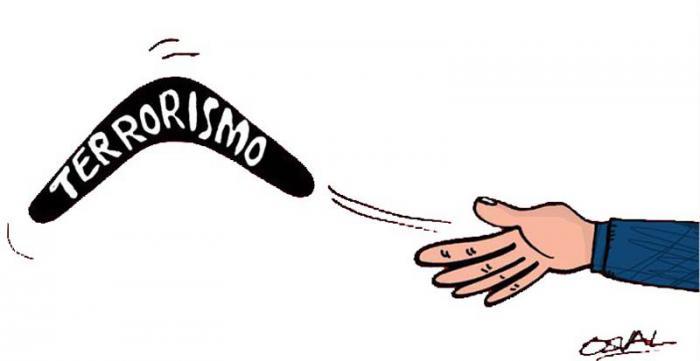
The U.S. government has put into practice a hundred variables in the arsenal of its aggressions against Cuba. One of them is to present the island as a State that sponsors terrorism, with all the consequences it entails.
Successive U.S. administrations, from Ronald Reagan to Joe Biden, have used the inclusion of Cuba in that list as a tool of pressure with a definite political character.
However, the Government of our country has both historical reasons and ethical principles, to vigorously reject and condemn terrorism, a scourge of which it has been a victim. This attitude is in sharp contrast with the position of Washington, which has promoted and sheltered in its territory violent groups, perpetrators of execrable acts against the Cuban people.
Cuba has an impeccable record of international collaboration in the fight against terrorism, and has always expressed its willingness to cooperate with the U.S. authorities, as it does with other countries.
Our State has signed 19 international agreements related to the fight against this scourge.
An example of the Island's position was made clear when the attacks of September 11, 2001 against the World Trade Center and other targets in U.S. territory took place.
In those complex circumstances, our country immediately condemned the attack and expressed its willingness to contribute, "to the extent of its modest possibilities", with the health institutions in the attention, care and rehabilitation of the victims. The Government of the Island even authorized planes in flight to use Cuban airports.
It was not the first time that Cuba collaborated with the United States to confront terrorist acts. To cite just one example, in the summer of 1984, it was possible to abort an attack that was being prepared against U.S. President Ronald Reagan, thanks to the timely warning given by Cuban authorities to the U.S. Government.
Cuba will continue to honor its commitments in this area, a responsibility it included in its 2019 Constitution.
Translated by ESTI















